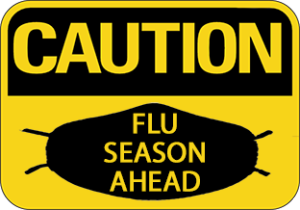
Due to a weakened flu vaccination strain and rising influenza hospitalizations, we are in for a fierce flu season.
‘Influenza A’, also known as ‘H3N2’, is this year’s most prevalent flu strain. It has been very rampant this winter all around the country and in Puerto Rico. The Centers of Disease Control and Prevention says that 29 states have had widespread flu virus outbreaks.
The first problem identified is that the current vaccine available is only 60% effective in preventing and/or reducing flu symptoms do to the H3N2 strain mutating. When a vaccine is weaker, healthcare professionals hope that more people will get themselves inoculated. However, a second problem arises when word gets around of a vaccine’s ineffectiveness and many more people end up skipping it. As there are more than one flu strains, people who pass on getting a shot put themselves at risk for catching another strain.
As a result, hospitalizations related to influenza symptoms are predicted to be higher than normal. From 2012-2013, over 380,000 people were hospitalized with flu-related illnesses. Many of these were children under 5 years old and adults over 65 years old who have a greater risk of flu complications.
While certain demographics are always more vulnerable to the flu virus, this year’s particularly potent strain will have a larger effect on pregnant women, people with weakened immune systems, asthma patients, and people with recurring medical conditions such as heart problems.
This season is no easier on the health care workers trained to treat the growing number of flu patients. The health care industry has enacted numerous precautions in order to protect their staffs as well. Health care workers who have not received a flu vaccination are required to wear a surgical or procedure mask in NY State.
What should you do in the event you exhibit flu-like symptoms? See a doctor. Some preventative measures for the flu include hand washing, constant hand sanitizing, covering your mouth when you sneeze/cough, and to keep hydrated. In addition, the CDC still recommends getting the flu vaccination as it has been argued that while the vaccine is not perfect, it is the best protection available for flu prevention.
